This was in a Facebook ad that popped up for me. This is a very common mistake. There is a Proof That blog post about the topic of “everyday” or “every day” here. In this case, it should be “Every day.”

This was in a Facebook ad that popped up for me. This is a very common mistake. There is a Proof That blog post about the topic of “everyday” or “every day” here. In this case, it should be “Every day.”

I saw this on a recent winery tour. The correct word should be “seated.” “Sit” (and its past tense version, “sat”) means “to be in a position of rest.” “Seated” means “arrange for someone to sit somewhere,” which is what the Hostess would do once you check in with them.
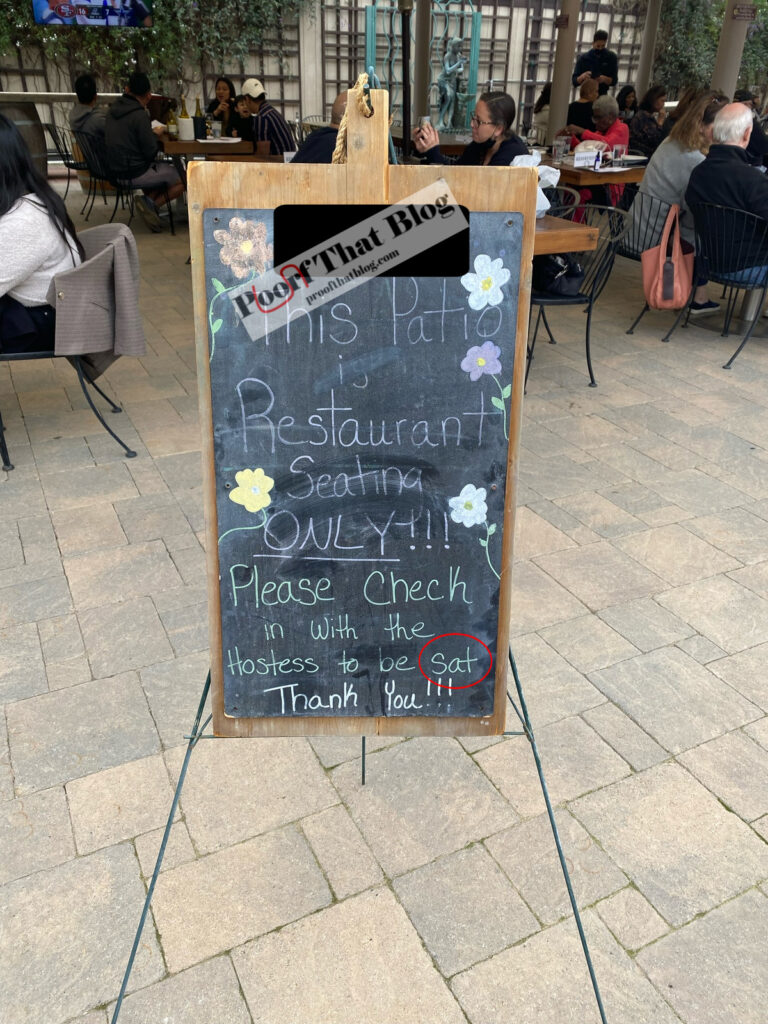
I had a reader ask “Question: When formatting a pleading, what is the /// called at the bottom of the page? What are the rules?” After some research, here’s what I find:
It is usually called a “slash” (or in this example, three slashes). This slash is also called “forward slash,” “diagonal,” “virgule,” or “solidus.”
In formatting a legal document, you should always leave at least two lines at the bottom and at the top of a page avoiding a single line in either place. The single lines are called widows (at the top of a page) and orphans (at the bottom of the page) and there are settings in Word to avoid that (Paragraph, Line and Page Breaks, Pagination, Widow/Orphan control). Sometimes, moving the orphans to the next page leaves a larger margin at the bottom of the page and is particularly noticeable when you are using numbered pleading paper. To avoid the reader thinking that is the end of the document, some people use the three slashes–either without space or with a space between each slash–to signal that there is more text on the next page. I typically see the slashes with spaces between each slash and on each line–with the same spacing as the document itself–on as many lines as you need to get to the last numbered line. Here is an example:
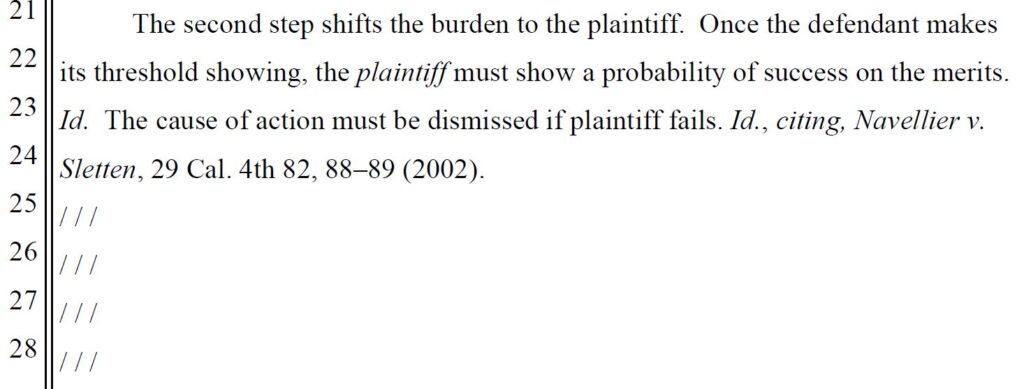
While it is not necessary and there is no rule that I find requiring it, it will depend on your firm’s preference. Using the three slashes does make it clear that there is additional language on the next page, so I see the usefulness. The caveat is to make sure that that is among the last tasks you do when finalizing a document. Otherwise, if language is deleted or moved around, the slashes could end up in the middle of a paragraph or between two paragraphs and just cause confusion, so be very careful when using them.
This was in a story that was in my Facebook feed recently. I’m sure the word they meant to use was “chutes,” which, according to Dictionary.com, means “an inclined channel, as a trough, tube, or shaft, for conveying water, grain, coal, etc., to a lower level.” On the other hand, “shoots” means “to hit, wound, damage, kill, or destroy with a missile discharged from a weapon.” There is another definition of “shoots” that could fit ( “to send forth missiles from a bow, firearm, or the like”). However, that definition, while it might be way more fun, seems like it would leave a big mess if you did it with trash.
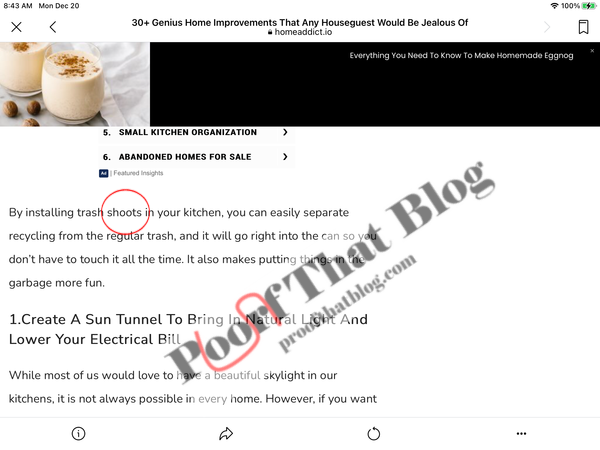
This was a local news station “breaking news” alert.
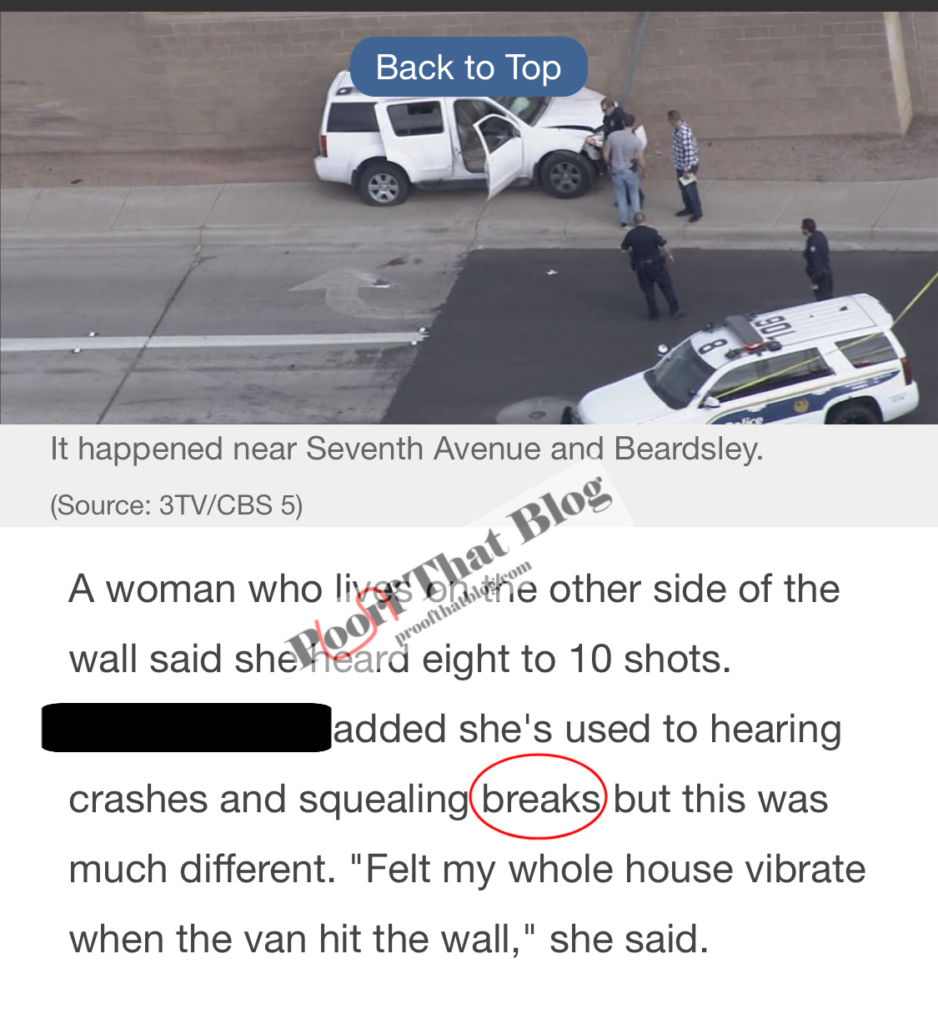
According to dictionary.com, here are the differences:
A friend sent this one to me. I hope you have had a giggle this week with my Christmas-themed Grammar Giggles! Thank you for another year for Proof That proofreading blog.
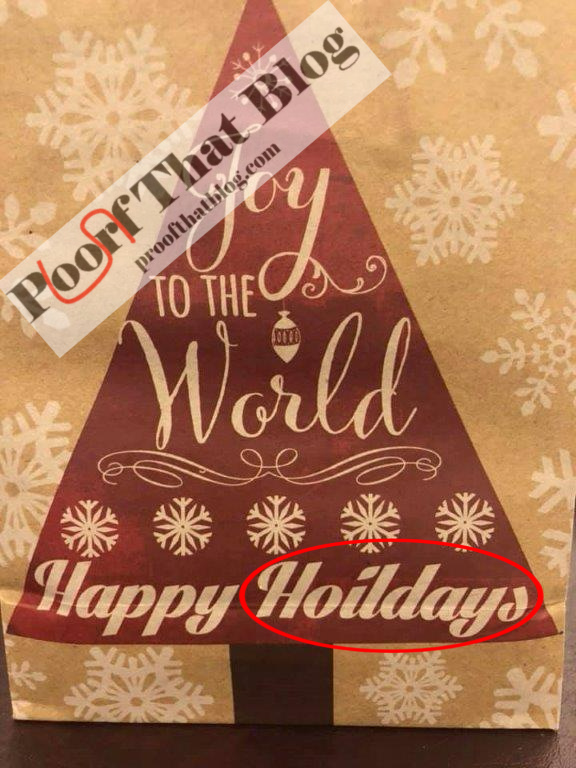
This one made me laugh a little. The last person I want to repel is Santa! According to Dictionary.com, “repelling” means to “to drive or force back (an assailant, invader, etc.),” while “rappelling” (which I’m pretty sure is the word they were looking for) means “the act or method of moving down a steep incline or past an overhang by means of a double rope secured above and placed around the body, usually under the left thigh and over the right shoulder, and paid out gradually in the descent.” Also, I’m not quite sure why the headline says this is in Germany, but the next line says it is at a volcano in Mexico. Someone didn’t get their facts quite right.
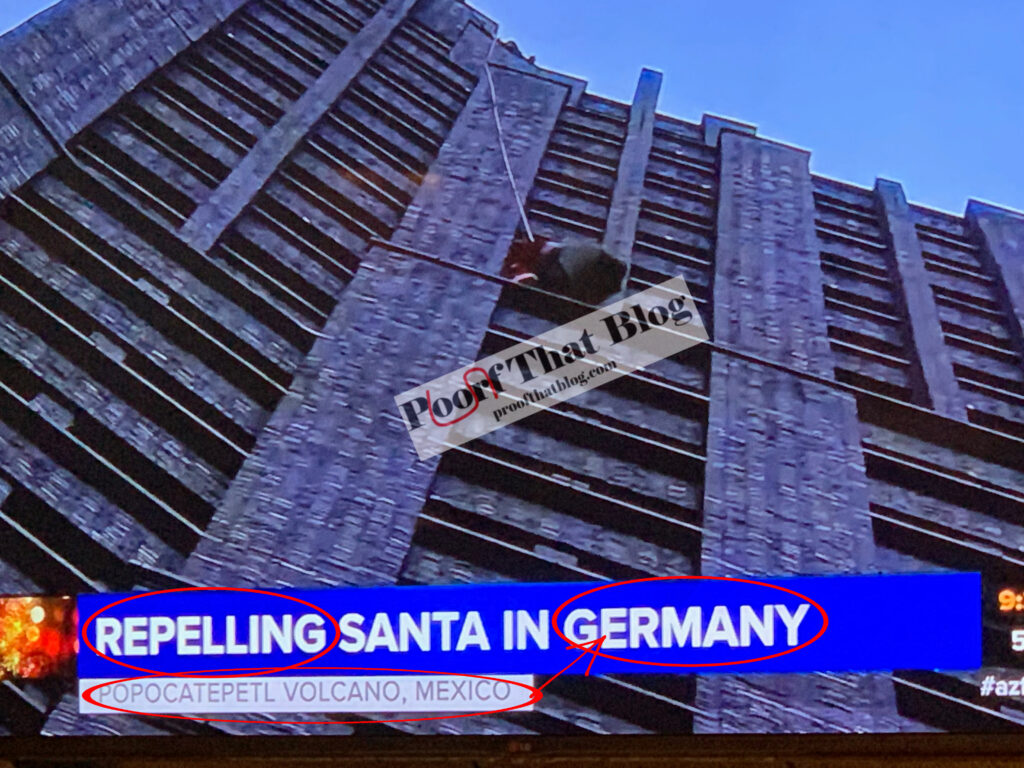
A friend sent this one to me. It’s obvious they meant to say it was a wrapping paper “cutter,” but left one of the letters out, which is still a word and spell check wouldn’t have caught it.

Another example of an errant apostrophe. What does the Christmas Eve dinner special own? That is the only time an apostrophe would be appropriate here. Otherwise, you are talking about multiple (or plural) Christmas Eve dinner specials, so just using the “s” is correct.
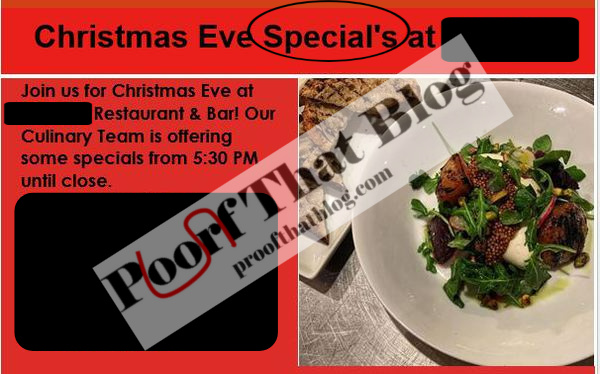
We will have a Christmas-themed Grammar Giggle every day this week. Hopefully, you will get a smile and learn something from them. So here is Day 1! I found this one in my email. This was so full of errors that it is obvious it isn’t from Wells FARGO, but is instead from another of those groups that attempt to get your personal information by sending emails that appear to be from legitimate companies. It might be easier for some of them if their grammar was better.
